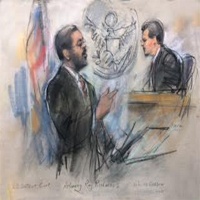New Baltimore Criminal Lawyer, Michigan
Sponsored Law Firm
-
 x
x

Click For More Info:
-
Richards & Associates, PLLC
200 East Big Beaver Road Troy, MI 48083» view mapCriminal Defense Accomplished Criminal Defense Attorney
If you face criminal charges, you deserve an experienced defense lawyer who has a reputation for winning the tough cases.
800-844-5250
Peter M. Mianecki
Real Estate, Estate Planning, Family Law, Criminal
Status: In Good Standing Licensed: 44 Years
Robert J. Vitale
Other, Family Law, Divorce & Family Law, Criminal
Status: In Good Standing Licensed: 29 Years
John H. Waldeck
Federal Appellate Practice, Family Law, Divorce & Family Law, Criminal
Status: In Good Standing Licensed: 59 Years
Paul F. Zyburski
Motor Vehicle, Deportation, Employment, Criminal
Status: In Good Standing Licensed: 36 Years
 Ray Richards Troy, MI
Ray Richards Troy, MI AboutRichards & Associates, PLLC
AboutRichards & Associates, PLLC Practice AreasSpecializations
Practice AreasSpecializations
